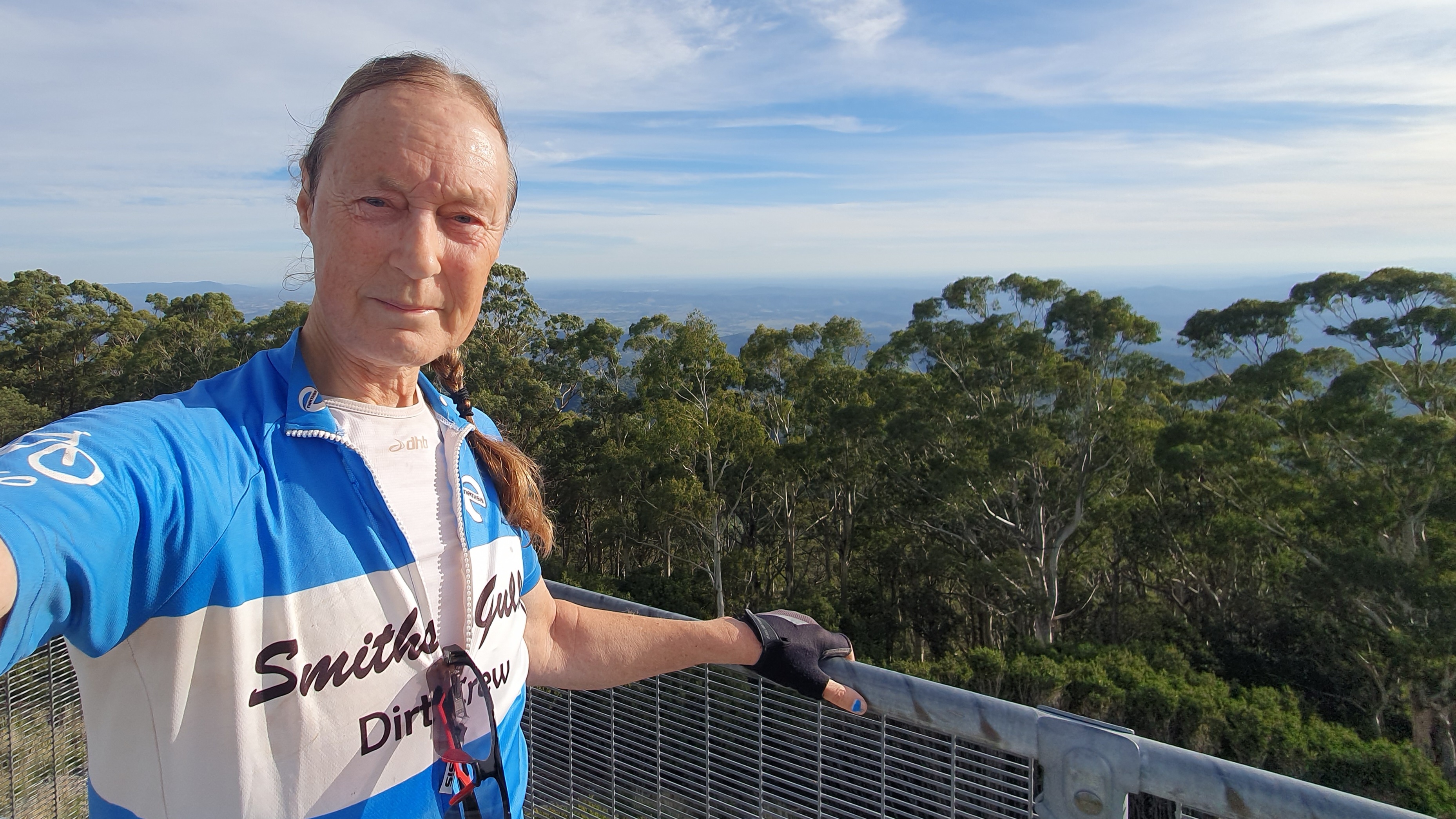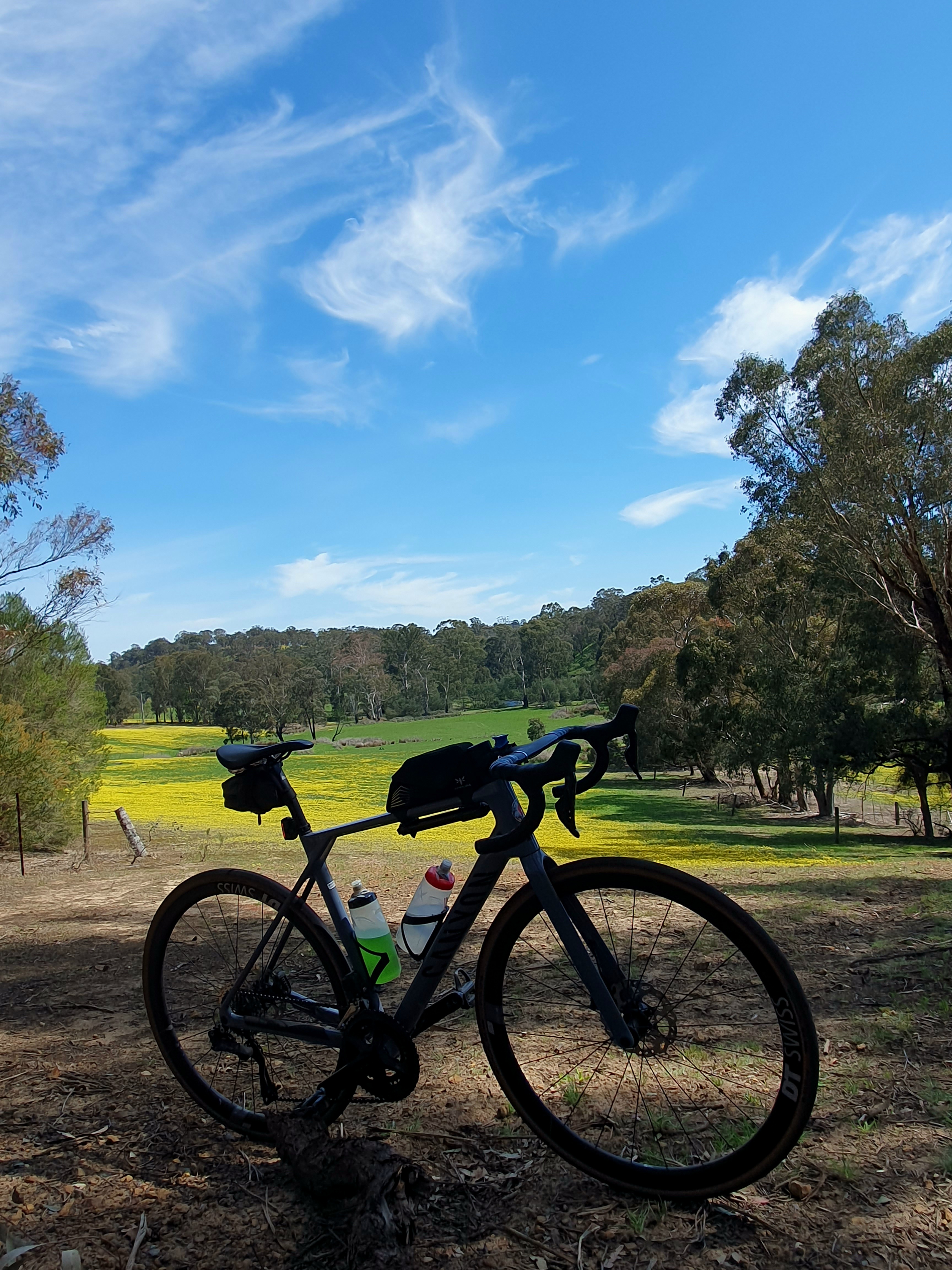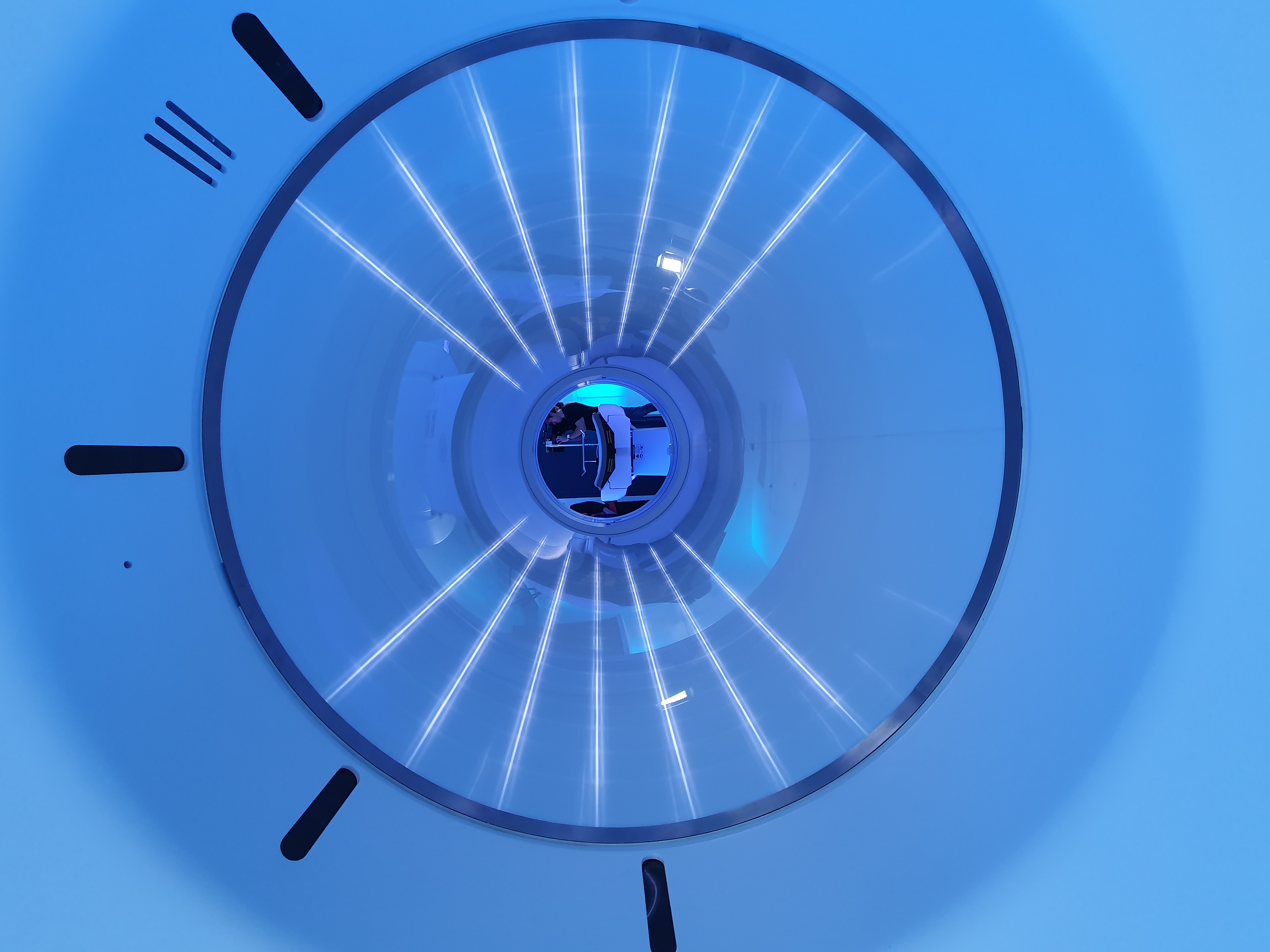
Previous, December 2021-April 2025. Back to start, December 2013
It was several weeks ago that I saw my oncologist. My PSA was up to 3.4 - a big jump in percentage terms but I'm still off the medication. However, fatigue has still been a nightmare and it is all a bit of a blur. After the Great Ocean Road ride I relaxed a bit, perhaps too much, and a week later a bout of fatigue ensued. When I had mostly recovered, and while I still had good fitness and strength, I decided to try a bike-packing trip where I carried a tent and sleeping gear. It is something I had been meaning to do for a long time. I was also keen to try some gravel roads that I had never ridden, check out the summit of Mt. St. Leonard and try "stealth camping" rather than staying at an official camp ground. It was a tough first day but successful - see the photo below. For the second day I had tentatively planned another mountain and a long ride home but after meeting an old school friend for a long breakfast I decided to take an easier route and catch a train through the Melbourne suburbs to get close to home.

More fatigue followed and around ten weeks ago I went to get my annual influenza vaccination. The pharmacist convinced me to also get a shingles vaccination. I did mention fatigue side-effects at the time but was assured it should be fine (I think the pharmacist may have been concentrating more about the rebate he would get from the government than my situation). I think I was a bit vulnerable and had impaired judgement. It has been a disaster. The first week was OK and I was hopeful I would have not bad reaction but then the fatigue kicked in. Three weeks in I could hardly walk. The reactions I have to other vaccines have eased after around a month and I've then been able to resume exercise and get my fitness back. On this occasion I started feeling a bit better and tried a couple of rides but the fatigue returned with a vengeance. And it has happened since then as well - even riding very slowly for a solid distance has been followed (after several days) by extreme fatigue. I have had some periods when I have been somewhat better, and managed to get away for a few days with my partner, but overall it has been pretty dire.
Too many days when I could hardly walk, when I couldn't think straight. Too much staggering around the house and garden with no energy even to go to a local cafe with the family for lunch. Too many hours of mindless scrolling through social media on my phone. Too many times when I've had to crawl up the stairs to have a shower. Too many times I've though that getting dressed shouldn't take this much effort. Sometimes I wonder if it will ever end. And I wonder what things will be like when I go back on the cancer medication and my body has another cause to be fatigued. But I struggle on. I try to tell myself I've been like this before and recovered. And I can still be effective at coding when I can't do anything physical, even with a foggy brain. I don't know why I'm not recovering. I don't know why I can't figure out how to end this blog entry without a cliche, but life goes on.
The fatigue I strongly suspect was caused the vaccine (more specifically, the adjuvant component of the vaccine) eventually eased somewhat then I was hit by a severe bout of gastroenteritis, which took weeks to recover from. Five days ago I did my first longer ride for ages - a (normally) "easy" 100km with no major hills, though on this occasion battling a head wind for the second 50km was far from easy. However, the next day I felt OK - the best I had felt for quite a while. Two days later I had my oncologist appointment. I didn't think too much about it beforehand but expected the result to be bad, resulting in starting the medication again. Indeed, my PSA level had risen to 19 and medication was called for. I was resigned to it but hadn't realised just how much it had risen until I checked later, plus it's the highest reading since my diagnosis. It had a somewhat delayed impact on me. It seems my PSA exhibits faster than exponential growth. I wonder if there is some kind of positive feedback and the cancer is not just doubling but also changing the environment so it can grow even faster. Or is each cancer cell also releasing more PSA? Perhaps the oncologists understand such things or perhaps not. At this point it probably doesn't really affect the best treatment options anyway.
When I stopped taking the medication, almost a year ago, it took over a month for the fatigue to ease but the morning after the first dose I felt the fatigue return (pretty unfair, right?) and yesterday morning it was really weighing me down. Despite this, I set off on my first "proper" ride (>100km and >1000m of climbing) for a couple of months. It was very hard work, especially at first, and I was slow but it was nice to be out on country roads again, with pretty views (see pic below). I was a bit wiped out for the rest of the day but today I felt significantly less fatigued. I'm attempting to draft this blog entry while pedalling on an exercise bike in the lounge room, trying to avoid the slide into more fatigue.

Having completed the ride yesterday I bit the bullet and signed up for the Peter Mac fundraiser I've been doing for several years now. Given my current fitness I was relieved to find that the maximum distance option was 250km (I'm sure it was 500km in the past). I always aim high. A few years ago I probably would have knocked off 250km in the first day if the weather was good. It's rather unlikely this time, but the distance seems achievable. Please sponsor me via this link. Thanks in advance! The money raised goes to help cancer research at Peter Mac.
Cancer research, along with much of science, is in a pretty dire situation currently. Under president Trump there is a war on truth and that extends to a war on science, including medicine. For many years, the USA has produced more research on medicine and many other areas of science than the rest of the world combined. But research programs have been stopped in their tracks and re-starting them will be difficult. All the more reason to support research at Peter Mac. I fully understand the attraction of rejecting truth and replacing it with beliefs that make us feel better - reality can be pretty bloody nasty, even for rich white men such as myself. But we do so at our peril. Reality is resilient and has a way of rearing its ugly head and bursting the fantasy bubbles we create, no matter how much faith we have in them. Sure, some fantasies make people feel better and do no harm. But fantasy-based policies concerning research (and other things) do harm, to future generations.
Managing the fatigue from the medication has been a challenge but the medication certainly works. My PSA reduced to 1.1 (a few weeks ago now). My fundraising was successful (thanks to those who donated) and I was the fourth highest individual fundraiser listed. Just before it finished (having ticked off all the other achievements) I decided to join a team from Peter Mac who were celebrating twenty years of using PSMA (Prostate Specific Membrane Antigen) for PET scan imaging and treatment of prostate cancer. They were excited to have their fundraising total increased substantially and also excited about a new machine being installed in their lab. They contacted me and I was able to see the machine while is was being assembled, and before it was announced to the world (so I wasn't able to disclose any details until the official launch). It is the first whole-body PET scanner (plus CT scanner) installed anywhere in the world and is a tribute to the scientific excellence of the researchers at Peter Mac.

I raved a bit about the science behind PSMA PET scans previously. What used to take fifteen minutes takes just two minutes with this machine, resulting in much higher resolution images and requiring a lower dose of the radioactive chemicals. A scan results in around a terabyte (a billlion billion bytes) of information that is processed with an impressive array of GPUs (graphical processing units), allowing many thousands of computer instructions to be executed concurrently to produce the 3D image used by the oncologists. I was also asked to be one of two patient representatives at the launch of this machine, plus other amazing technology in a lab devoted to microscopy. I got a tour of this lab also, which utilises some different amazing science. For example, using infa-red lasers to image cells inside a cancer. Because of my fundraising efforts, I was able to go on yet another lab tour - one that was concentrating on using immunotherapy to treat cancers. Lots of containers of reagents, living cells, zebra fish etc, plus centrifuges, freezers, incubators and the like. Very little by way of computing, but close by in the building they have access to the imaging technology, DNA sequencing and so on.
OK, if you are not into science, thats all a bit blah, blah, blah. How am I? My fitness is gradually improving. I've had some very low energy days but nothing too extreme and the same goes for my mental health. Very soon (weather permitting) I'll be celebrating twelve years of survival.
If this upsets you (and you are in Australia) you can call Lifeline on 131114.